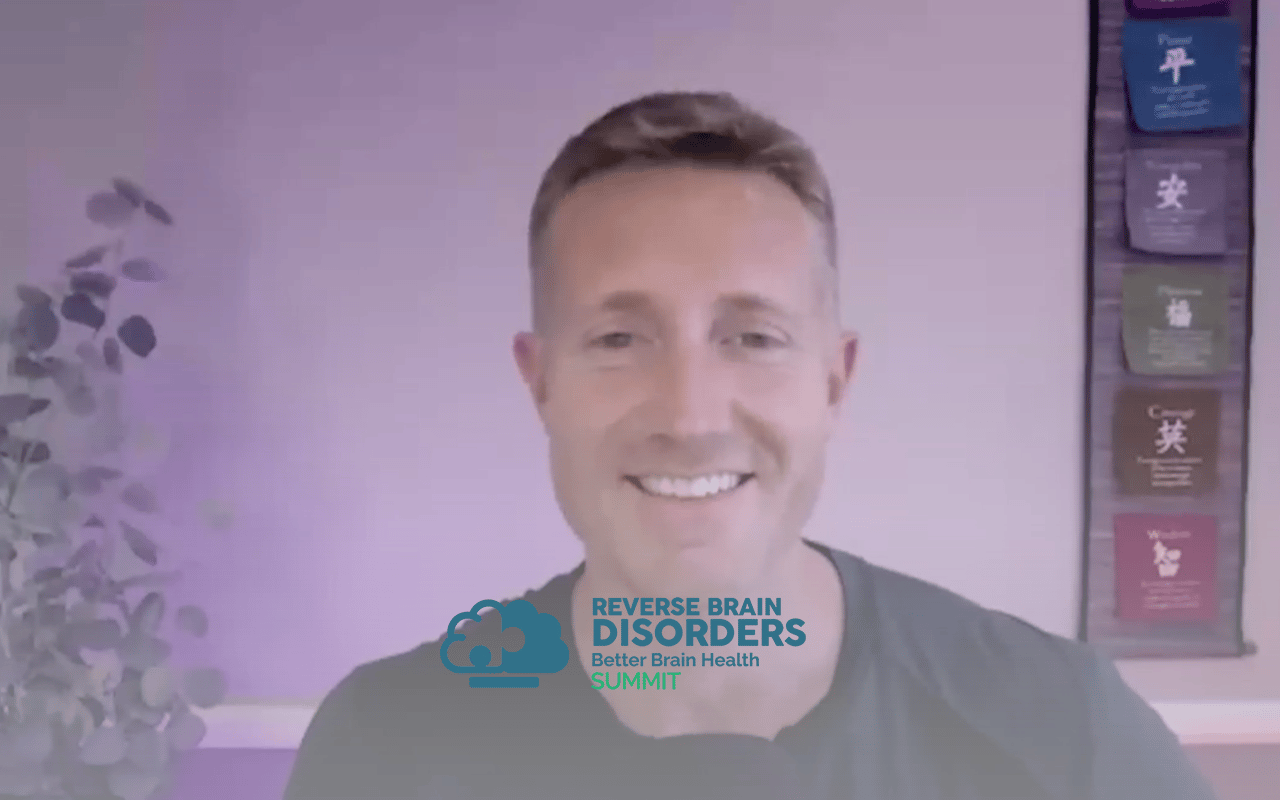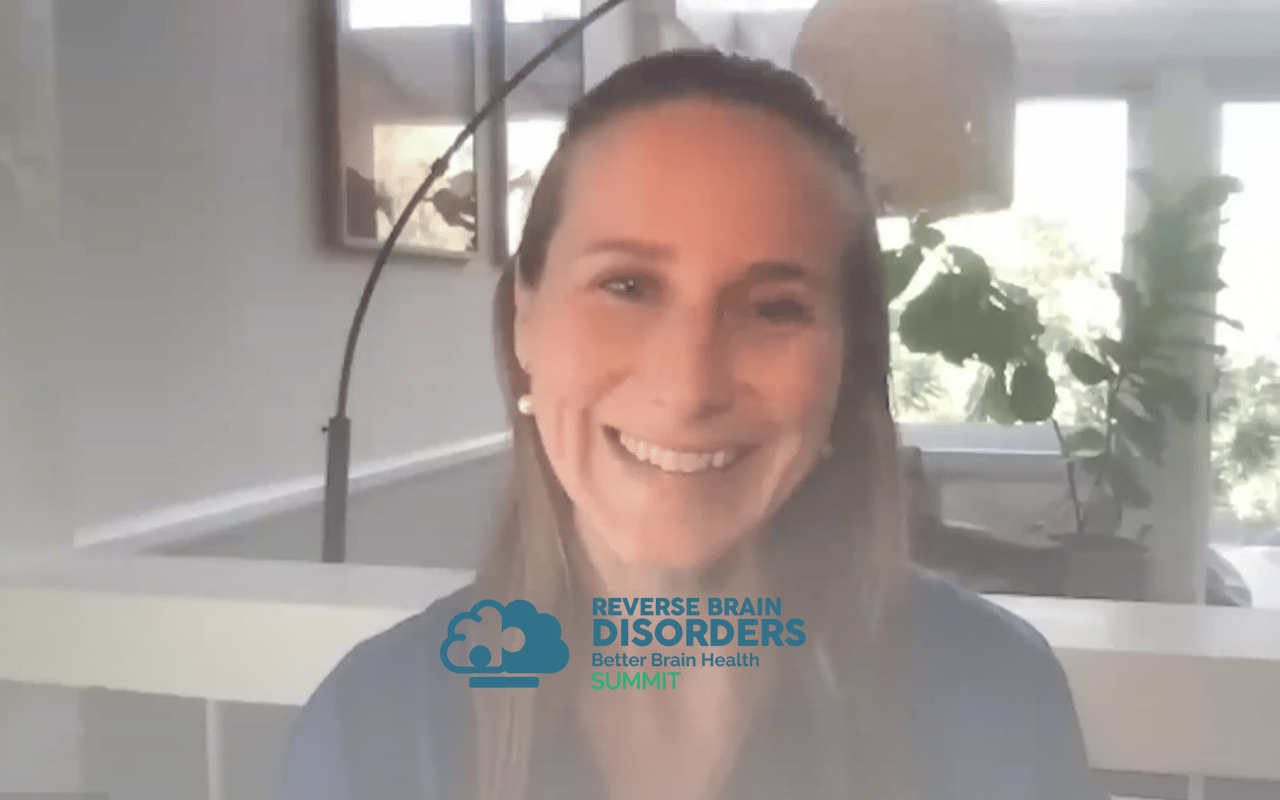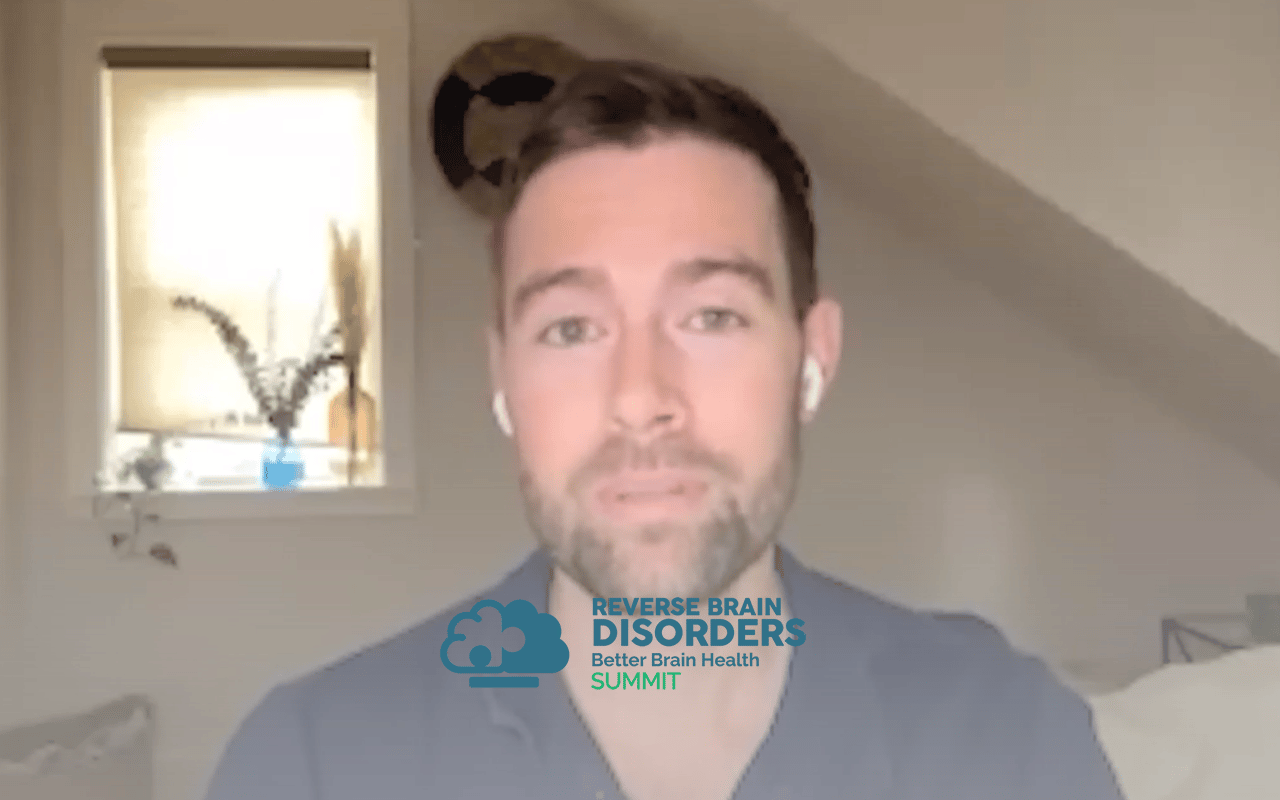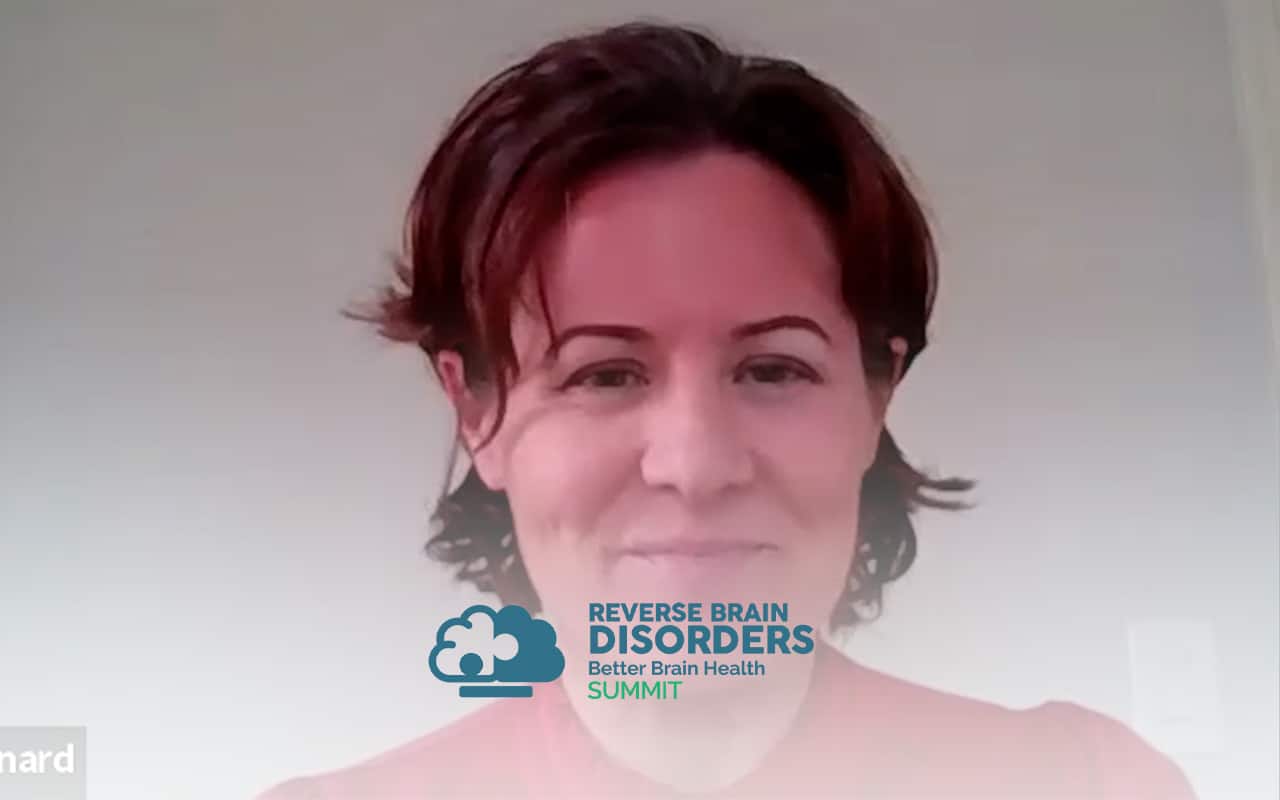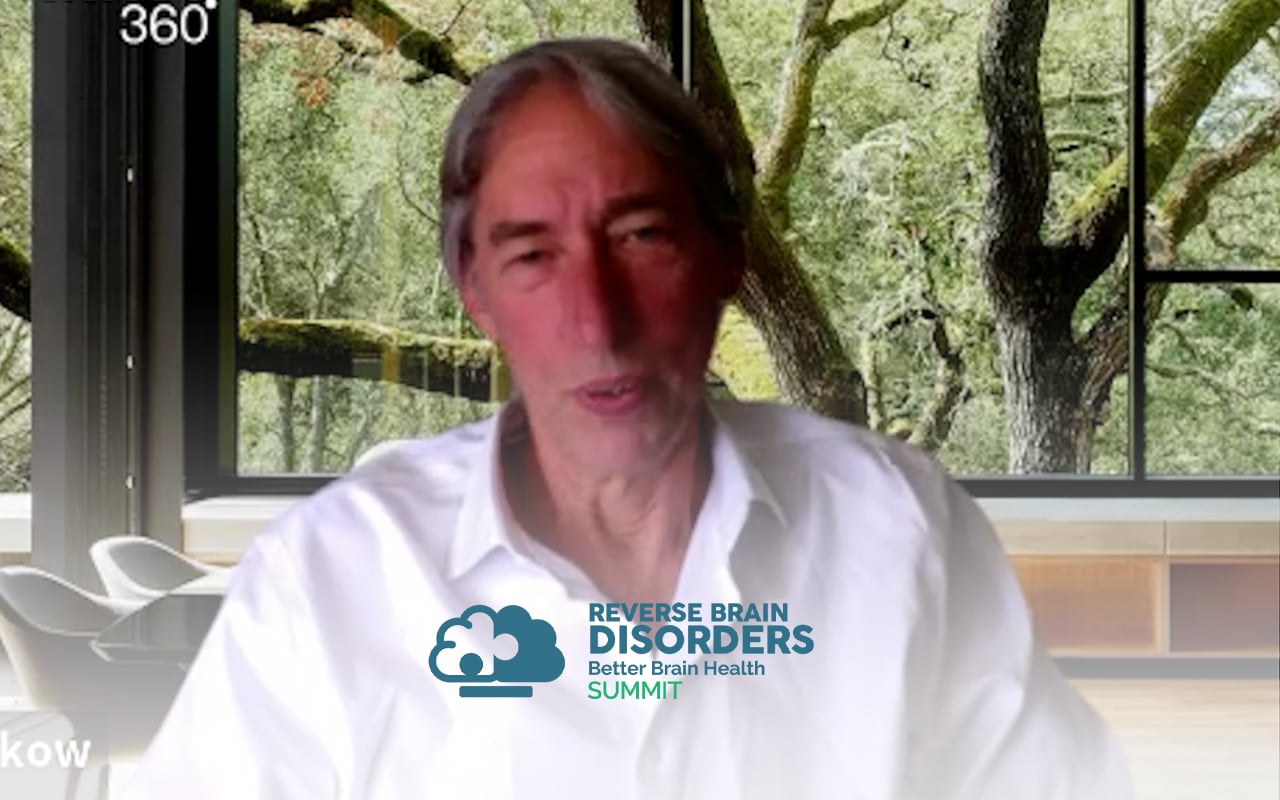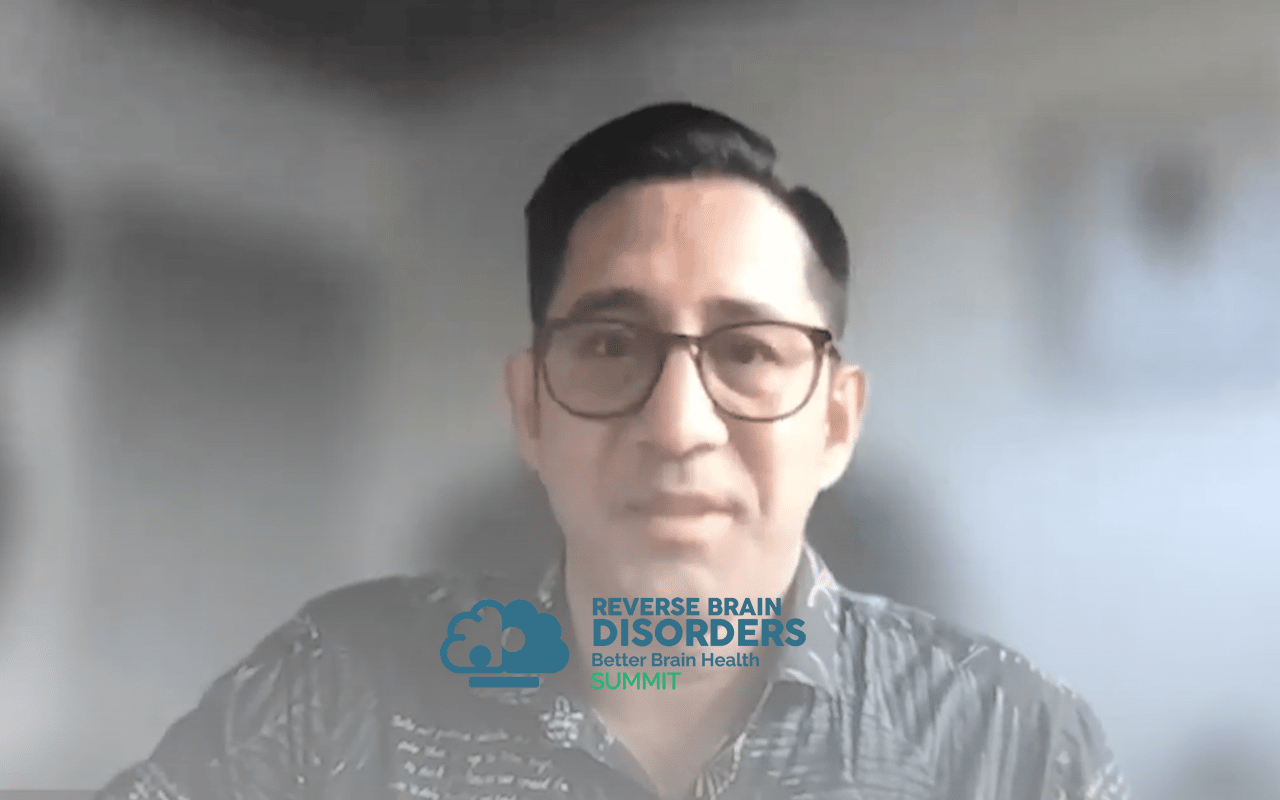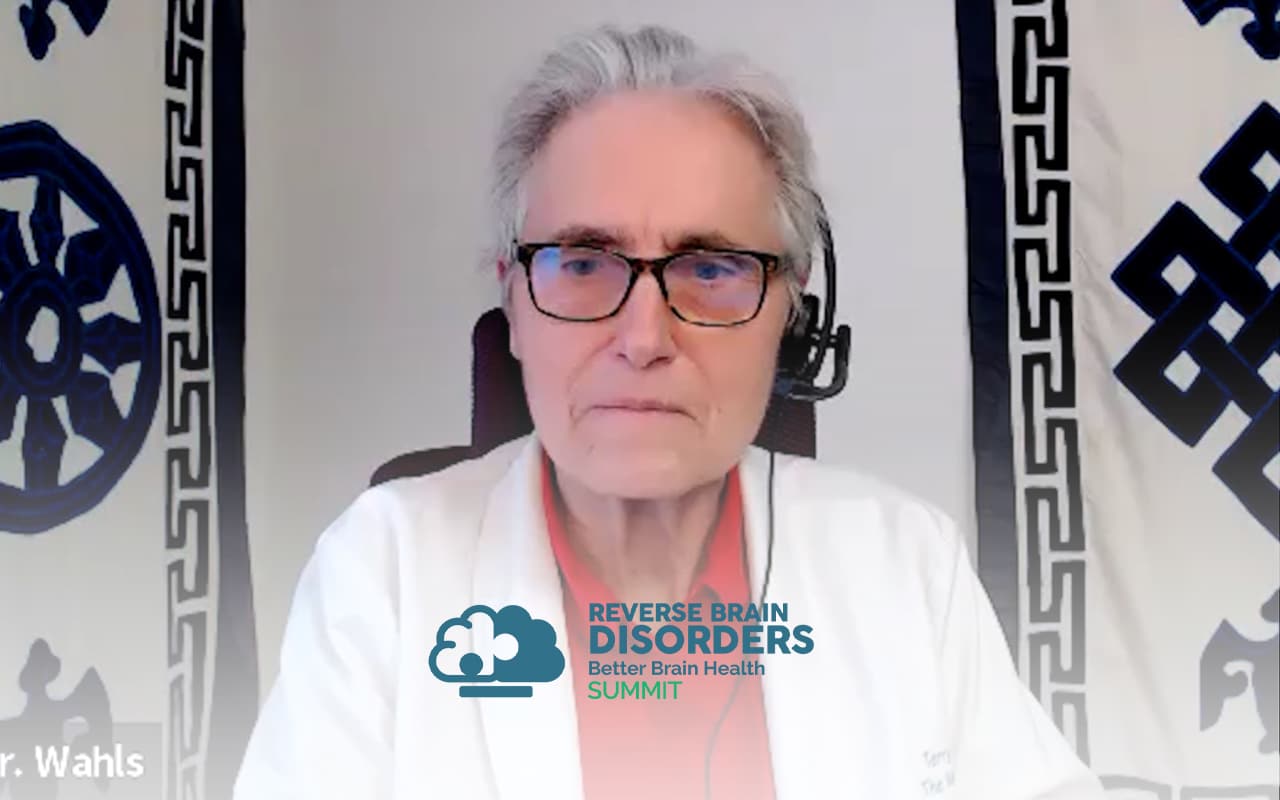Join the discussion below
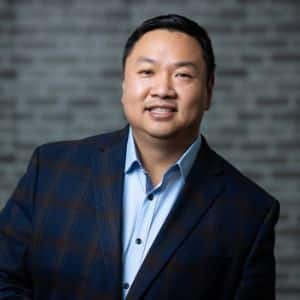
Dr. Ruan is the Founder and CEO of Texas Center for Lifestyle Medicine. He devotes his career in practicing and building systems that allow for efficient delivery of healthcare. He is a board certified internal medicine physician but also have advised with companies to improve their workflow, company culture, marketing,... Read More
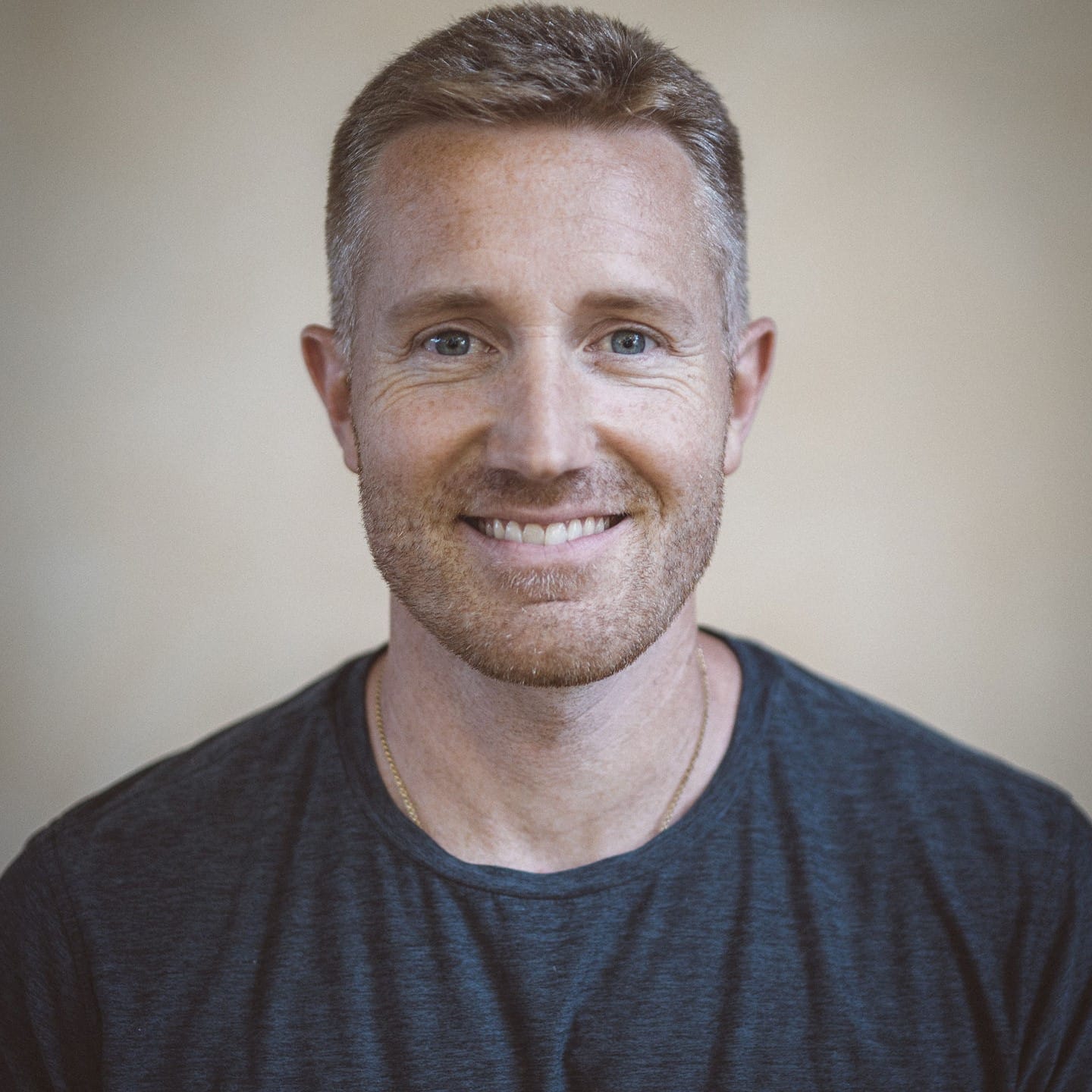
Jason Prall is a health educator, practitioner, author, speaker, & filmmaker. In 2018, his independent research and experience led him to create "The Human Longevity Project”, a 9-part film series that uncovers the true nature of chronic disease in our modern world. He’s currently finishing his first book titled, “The... Read More
- Why mental and brain health topics incorrectly addressed by the general medical society
- Why this summit was created
- How to end the stigma of mental health
Cheng Ruan, MD
Everyone, I want to introduce Jason Prall. My co host of the summit, Jason is a formal mechanical engineer turned entrepreneur, filmmaker and help optimization practitioner due to 20 years of his own health challenges. Jason has really given the opportunity to discover the reality behind his symptoms and through this entire multi year multi decade journey, he began really working with individuals around the world to really provide solutions for those who are suffering from working in integrated disease care model to model of health optimization and lifestyle medicine. These lessons were um accumulated into a free online documentary series called the human longevity Project. Really cool name, which uncovers the complex mechanisms of chronic disease and aging uh, and the true nature of longevity uh, in our modern world, because the world we live in is very different than how our parents or grandparents or great grandparents or great grandparents really lived and what does it look like in the very new future and man, and I’m so just so happy to introduce you to everyone and sorry for the long winded background, but obviously I’m gonna ask you a whole lot more about stuff, the stuff that you do, but hey, co host, thanks for being here.
Jason Prall
Yeah, it’s good to see you. It’s, it’s, it’s awesome to do this this event with you.
Cheng Ruan, MD
Yeah, so, uh, I want to ask you why, like why, why did you agree to, to come on and be part of the, it’s something that involves brain health.
Jason Prall
This is, it’s an area that I’m not specifically married to in my business necessarily, right. But in my own personal life, this is something that, um, that hit me really, really strongly when I was young, I had a great grandmother when I was young. Um and I remember her very well, but unfortunately most of my memory is clouded by her dementia and the experiences of that, and I think I was, you know, 8, 9, 10 and 11, somewhere in that range maybe, and um, didn’t have a real concrete grasp of what it is. Um but that’s what I remember. I remember her accusing us of stealing from her, uh, not remember who we were, of course, um, thinking that we were kind of the enemy or making up stories, and, and that was just a very, very difficult thing. And then, and then later, you know, decades later, I I watched my grandmother go through the same thing, right? So, um, you know, watching people, you know, and love go through something like dementia and Alzheimer’s and uh, it’s tough man.
It’s like, it’s one of the more difficult things I think we can go through. And um, and then you contrast that with the human longevity project that I did, you know, going around the world to these blue zones, speaking with people that are in their nineties beyond 100 watching the mental acuity that they had, I remember Giulio in Sardinia, he he was playing chess, um, with his, his son and he was 100 and five. He was playing with a chess with his 75 year old son or whatever, 80 year old son. So, you know, it was fascinating to get to experience those people um 94 year old in here in Loma Linda, California, actually playing the violin, learn the violin at 92 years old. Um, you know, so, so to me, it’s like when I see those two disparities, it’s like there’s something here that we can do to improve brain health.
Cheng Ruan, MD
You know, and on the topic of the human longevity project, um, I’m sure that was a multi year journey to, even for you to be passionate enough to get to that point right to make a documentary accessible to everyone, to get the word out there. Like what was really the mission behind that? How did you, how did you even start that journey?
Jason Prall
Yeah, well, it actually came from me working as a, as a practitioner, Integrative practitioner and all my clients that I was seeing. Um you know, they all, they all had their individual situations, individual context, right? They all walked in with something different, be it autoimmune conditions, food sensitivities, hormonal disruptions, hair loss, you name it right? The whole gamut I saw and we address, we had to address those things. We did specific testing functional medicine style. But what I found was that there were certain things that I was teaching over and over and over again when it comes to lifestyle medicine, right? I mean that’s like that’s your brand, right? Like lifestyle medicine. And so these are the things that it’s fascinating that we, that we all kind of need to go through this, um, in our modern age. But but it’s because we’ve created such an artificial world that we find ourselves in, right? I mean, even right now, we’re on computer inside, right? We live in a very artificial kind of bubble. And so we need most of us need to relearn how to live in this world that we’ve created. And so that’s what I was doing.
I was teaching over and over again, circadian rhythm, right? What that even is and how we optimize sleep. I mean, that’s a huge one for everybody that’s going through chronic issues that I ran into is we gotta optimize sleep, right? Of course we we navigate the food choices and all these things. Right? So it was it was this lifestyle medicine that I was teaching to every single one of the clients that I that I worked with. And that’s really what I what got me interested in in um, thinking about, you know, not only from like a anthropological paleo sort of perspective because we hear these stories about what our ancestors ate and what they did and you know, I think there’s a lot of theory about that that we don’t really know, right? We’re using fossil records all kinds of assumptions. And I thought, you know, there’s actually group, there’s people around the world that live primitively in Africa, right?
We have people that are living really, really pretty and then we have these groups of people around the world that are living sort of quasi primitively, right? Like kind of like what we might have lived like in the United States 60 years ago or seven years ago or 100 years ago. And you know, that’s interesting to, to go talk to them and to really find out about their lives because in 1950 Costa rica, there was no electricity in these little villages, Right? In, in the mountain regions of Sardinia or Ikaria Greece or Okinawa, they didn’t have cars in the 1950s, so they lived in a totally different way, right? So I wanted to talk to them and that was really kind of, the impetus was, was to get a sense for what their lives were like and what contributed to their unbelievable health, not only brain health, but overall health when they get into their, into their old age.
Cheng Ruan, MD
You know, I think a lot of people are kind of watching, they’re listening to this and thinking, yeah, you know, there’s a die component, there’s a lifestyle component to it, but I think there’s a belief system component to it as well, right? A lot of things in whether it’s Alzheimer’s or even mental health, attention deficit depression, these are sort of taboo subjects, not only do the public not really want to talk about because it just seems so debilitating, but neither do doctors very much right. And I, and I feel like, you know, part of this journey and part of my story with with a better Brain health summit is that there are so many success stories that I’ve seen for improving brain and mental and comments to help so many, right. And there’s commonalities like I said behind all of them that’s similar to the principles behind the human longevity project, but part of the, part of the reason why we have the summit on is for to develop relationships, you know, it’s stuff that we want people to listen to from the world’s talk experts, right? And also make it not to make it talk to their family members about it and put it out there and know and having people understand that there’s actually a lot of cool stuff and technology that are out there that we can do something about brain and mental health, you know?
Jason Prall
Yeah, totally. And this is your, your hitting at something I think is really, really interesting when you, when you kind of work from a clinical perspective is that you might have somebody that has no fungal infections, right? And they have this variety of symptoms, skin issues and trouble sleeping and you know, just all over the place, digestive concerns and then when we clean that up all of a sudden their brain works better, right? Or all these other peripheral things. Right. And so this is this is something that I think is really interesting when we get into kind of the chronic conditions, these low grade inflammatory conditions, these syndromes that that many of us, to be honest, are experiencing and they include the depressions, the anxieties, right. These sort of mental health things that we might classify. But like there’s a difference between diagnosable sort of conditions, so to speak and sort of these low grade under the radar, um, kind of situations that we find ourselves in and and when we start cleaning things up, when we start addressing certain things all of a sudden we we find a new level of reality. I think this is what’s interesting to me. Right? And and and your your point is so important, particularly when it comes to stigmas, right?
I mean, ADD, ADHD, Autism, right. This sort of Asperger’s, these spectrums and and we were kind of shying from them, right? We’re we’re, we don’t want to label them as as, you know, um, anything negative. And yet I think it’s important that we look at them and say, hey look, we can do something about this, right? The number of kids that I’ve seen that had that are in this sort of autism spectrum. This Asperger’s, ADD, ADHD spectrum when we start cleaning up some of the things in the diet when we start doing a little detoxification. Their whole attitude changes, their their their symptoms change their sleep changes. Like this is what to me is so important is that we don’t we stop kind of labeling these things like when you when you get into the clinical aspect, true from an integrated perspective labels stop mattering right? And you just start recognizing where the opportunities are to improve function. And so I’m just kind of curious what your what your experience has been in that sort of same light.
Cheng Ruan, MD
You’re exactly. Right. So so part of this thing is that, you know, as a practitioner, as a doctor, you take medical insurance and Medicare and stuff like that. One of the hardest things, one of the hardest things to do sometimes is to not get the patient on board, let’s get the other doctors on board. Right? And so my belief is collaborative medicine, right? So you know, more than 50% time, I’m not seeing patients, I’m reaching out to other doctors to actually collaborate on the case. And what I found is that there’s a huge reception of this type of lifestyle Integrative health because all doctors actually know there’s a lifestyle component to Brain health, right? Are educated in it and they’re not educated right. When I went through medical school residency even I was really good at pharmacology and I can prescribe the heck out of drugs and stuff like that. But little did I know that was just the beginning, right? There’s a lot more to it than that. And so it takes some people um success stories if you will to really understand that things can actually improve and I’ll tell you a very interesting case.
So I had um someone who had been working on my whole team has been working on for 4, 3.5 years and she was the loveliest person in the world. But every time she came in there was a lot of stuttering a hard time understanding her. We gave her extra time a lot of neurocognitive deficits. Now she’s young, you know, she’s she’s younger than Medicare age, let’s put it that way. Uh and so when she was starting experiencing these things in the late forties, early fifties there was a million dollar work up that was done by neurologists and a bunch of different other ologists that didn’t really amount to anything and maybe they were like, oh maybe got seizures, maybe got this, we don’t know what’s going on with you. Um but over three years we tried a lot of different things and the progression was kind of slow at first it was still improving, right and then there’s always that one that that that I noticed is that someone will give me an idea and this happened to be her dentist, right? And her dentist say, hey, you know what just putting it out there. She’s got some some dental infections and her her jaw is kind of like not the right shape as it should be underdeveloped. Let’s let’s look for things. And as it turns out we look for things that we found it and the dentist is the person with one treatment that actually got here significantly better.
In fact I just saw her earlier today and she was like a different person. Her EEG Looks different when you’re a cocktail just different imaging lives different. She’s like a different person and today is really the first time that she spoke like in a prolonged 34 or five sentences, no stuttering. Everything was look great right? But it really took a lot of investigation and pulling people together. Now when I say this when I when I explained this to the neurologist and she has five right neurologists, rheumatologists and different ologists. There was a sense like wow let’s let’s publish it. Not not I don’t believe you. Well let’s publish it because we actually have the data attached to prove it right. And so there’s a lot of people that were actually involved in her case and those categories actually represented in the summit because for the brain to heal it’s not just the brain it’s the gut, it’s the oral microbiome that the mouth, the teeth, the airway structures. It’s things that happen that were younger that we need to identify as well, you know, and there’s things that’s happening right now, and there’s tools you can access right now as well. And that’s that’s what my my, what I’ve seen.
And that’s just one example of many examples of great stories, but it’s always a perpetuating ongoing journey. She’s not 100%. I don’t know if she’s gonna be 100%. And as it turns out when this, what she experienced actually came from a very rare, um, parasite that she acquired when she was a teenager swimming on the lake. And it just progressively got worse from there. We just never really caught, right? And so, so stuff like this are things that require a lot of collaboration required a lot of discussion, but a lot of people like her spend years suppressing it, thinking, oh, there’s something wrong with me and I don’t want to talk about it because I’m a mom or my grandma or, you know, I’m a dad or whatever it is, right? And, and that’s the thing to pick up is that there’s always symptoms and now it’s really the time to talk about it, you know?
Jason Prall
Yeah, totally. And, and I think, um, you know what I’ve seen, working with a ton of people and even the health challenges that I face. And that’s really how I got into the health field was dealing with chronic joint pain when I was, you know, 13, right that I couldn’t get any answers for for 20 years. Uh, you know, skin conditions that I was dealing with, you know, these are, these are challenging and what comes often with with these things of shame, the shame, this idea that there’s something wrong with me or that, you know, and this, this comes from a lot of the conditioning that we have when we’re kids. But you know, we take on this idea that it’s our fault, right? There’s something I did or didn’t do. I’m a bad boy, right? Like these are, these are conditions that come from from childhood that we can actually carry with us with these things that show up, right? And this is your, your example is perfect, right? It’s like a parasite. I mean, a lot of times it’s, you know, it’s heavy metals or um, you know, there’s mold, right?
This is a very common thing. And these things when, when coupled with some of these sort of childhood traumas or experiences that we all carry, right, when you couple that with perhaps an incorrect diet for the situation, right? If somebody has yeast, candida mold and they’re eating, you know, a pretty balanced healthy diet well, it’s not so healthy anymore because those, those, those yeast or mold species really thrive on things like oats and rice and some of these sort of carbohydrates which aren’t inherently bad otherwise, right? So a couple of these sort of interesting contexts and, and then all of a sudden, you know, we start going downhill and we just don’t know why. Right? And this is very, very common. And this can be due to travel, right? We can pick things up certain stressful events in our lives can really put us in a biologically stressful state, right?
So there’s just a lot that can go wrong, so to speak, and it puts people in a bind, because again, they think there’s something wrong with them, I think it’s there for and it’s really hard to find help, right? And this is why I think these summits, um and you know, the work that you and your team are doing is so, so important because it starts to open up the doors in the conversation how normal all this is that we all go through some kind of health challenge. And often times it’s very difficult to find out what’s going on. And then to really start to open up the the mind to this idea that there’s a potentially and a ton of different causes, right? And and the reason that’s important because it’s empowering to know that it could be the dental, if you’ve investigated everything and you finally hear that, oh, there, it could possibly be dental carries or dental infections or root canal issues. Right? Then all of a sudden now you have a new place to look, right? So I think it’s really, really important.
Cheng Ruan, MD
Yeah. And and one of the things that we tackle, uh we’re gonna tackle the summit is sort of this idea that a lot of people with brain health issues have seen a lot of different doctors, a lot of different degrees, right? And um there’s always sort of this emphasis on disease management, not necessarily disease reversal, right? Um and instead of creating health, we’re just managing some sort of disease or disorder, right? And uh and whenever there’s a pursuit a lot of times about the patients and they talked to the doctor about it, um it really gets blown off a bit, not because the doctor doesn’t care. That’s not true at all. It’s actually because the doctor doesn’t necessarily have the right tools or exposed the right tools and now they’re only working with the tools that they are given and they want to help, like we want to really help, right? But the pursuit of things that are outside the box requires the person themselves sometimes seek out sort of these things and that can create a lot of like, just trauma within the medical system, right?
And that’s what precipitates a lot of people kind of searching out for answers. And I bet you a lot of people listening to me right now kind of smiling. Yeah, that’s me searching for answers for for other things that that might be there. And in doing this summit my brain is open. I do not know everything. I’m sure you don’t know everything. Our brains are open. We’re here to connect people, we’re here to connect ideas and what are the congruence ease and those ideas, right? And when we’re talking about speaking with some of the smartest people in the world right now for for the brain health summit and there is a overwhelming agreement. And the overwhelming agreement is that we cannot ignore just the material things like whether it’s the mold or E B. V. Or food or whatever it is, right? But we have to appreciate the spiritual and emotional components as well. Like you said earlier, like traumatic events, um and not just traumatic events, even events that seems very like excitatory, they all form the way our physiology is. There’s no one size fits all approach. That’s why there’s so many different things that are covered. You know, on the summit is that these things could potentially work for people. But I want to encourage people that the pursuit shall always be there.
Jason Prall
Totally. And I think, you know, this is what’s fascinating about the brain is that we we really don’t know much, right? I mean we’re learning more and more each each year each decade and we’re uncovering amazing things, but we’re still in the dark about a ton of, of the function of the brain and how it all works, right? I mean, one of the most interesting areas in in in my view right now is going on in the psychedelic therapy, right? Things like um you know, M. D. M. A psilocybin, ketamine and it’s actually not from the perspective of what those of the experience of those sort of psychedelic medicines or therapies, but actually what it’s teaching us about the brain. So we’re actually using those substances and then we’re studying the brain and we’re learning like unbelievable information, you know, much like when we study meditators, right, these really, really advanced meditators and we start to see their brain waves and we start to monitor that and we think, wow, this is fascinating, this person can can get into this state um in such a profound capacity there are corpus callosum starts to thicken right with with meditation like these are interesting aspects because what are we doing, we’re actually shutting down activity.
We’re turning on other aspects of the brain. Um and and that’s where it starts to get interesting to me. And again, I think this is where a lot of learning is going to be taking place over the next decade or more as we start to introduce these really fascinating technologies that have to do with sound that have to do with perhaps, you know, light um some of these sort of psychedelic medicines, these Eastern practices, right? Like this is really interesting and I think we’re gonna we’re gonna uncover a ton and I know you’ve actually dealt with some of this, right?
Cheng Ruan, MD
Oh yeah, absolutely. And what’s great about it is I think the timing is right right nowadays because, um, with coronavirus, we’ve learned even more right. And you know, one of the most, and I ran the coronavirus emergency doctors summit At the very beginning of pandemic was like March of 2020, like, right at the very, very beginning, um, where we had a lot of integrative health practitioners on there as well as conventional doctors, infectious disease, you name it. Uh, there’s, there’s a lot of people that was on there and it was live and I literally just sat there and talked for eight hours. And so, uh, and it was fascinating because, um, that whatever we said at that time from an integrative health perspective still applies. And you know, currently, you know, 2022, 2023, it still applies currently. And it’s because the fundamental concepts of what we thought virology was, is actually reflected in our total body, especially our brain. So is C0V!D long haulers a surprise. Absolutely not not to the people who have been in chronic illness for a long time. Right? Or are are, are these no new dramatic neurological symptoms of coronavirus? Well, no, because it’s the same pattern. Other viruses have the same pattern.
Other toxins have like mold and stuff like that. So none of us necessarily need within the space. But now there’s a hyper focus on it. Right. And because of the hyper focus, people are speaking in languages now from technology and if you look at the newest celebrities on YouTube, they have a lot of MDs and PhDs after the name because of their positions and viewpoints on the coronavirus. But everything that they’re saying is actually part of like integrative and functional health of how our body actually functions. So in this brain health summit, Yes, we do have segments on on post C0V!D syndrome and stuff like that. But it’s still, we’re still tying into the overall global picture. And even though everyone’s different, everyone’s underlying functionality is the same. The way that our body reacts as things is very similar. The way our emotions react to things is very similar. And what’s different is maybe lineage because sometimes we can inherited traumas from multiple generations up that kind of trickle down to us that we don’t know about and this is really well publicized in studies. But the point of this summit is to understand that there’s no reason not to talk about it. And one of the really cool things is that we can now turn words into numbers.
So instead of saying, hey, I’m just depressed when I’m fatigued or you know, I have short term memory loss. There’s now devices out there that we use to literally show you, hey how far away are you from the 50% of the population in your age and gender. Is this really true and that’s the number that we want to target. Okay we can look at short term memory, long term memory markers, attention markers, auditory processing, visual processing uh you know A. D. H. D. Markets and stuff like that. There’s so many things that are out there right now that’s actually accessible to to everyone to be honest with you. Um But uh the medical community has been really behind in getting on board with that but that’s the point of the summit to let people know that there’s always gonna be hope. Yeah.
Jason Prall
Well I’m curious Dr. Ruan, what you know there’s a lot of technology coming out right. I mean you know functional MRI’s are really interesting. We’ve got neurofeedback right and different types of. I’m curious and just from my my limited knowledge of functional neurology you know there’s you can as a good functional neurologist good clinician can watch somebody’s gait, they can watch their handwriting, write their speech patterns and and and through monitoring these specific behaviors can actually sort of get a rough estimate estimate or diagnosis of the brain regions and what’s functioning well and what’s not. I’m curious if there’s technology that’s coming online that we’re going to start to monitor this in real time because this is one of the things that I think that we have a real opportunity as we start to get older in our forties fifties sixties seventies we can start to catch these functional issues before they become clinical and subclinical such that we can start to train them and do something different. What’s on the market? What do you see in that in that realm.
Cheng Ruan, MD
Yeah really good question. Let’s define functional clinical for a second. So you know functional means that our bodies function is impaired in one or another. Clinical means someone can slap a diagnosis on it. That’s really the only difference. Right? But to catch to catch disorders and diseases earlier you’re absolutely right. There’s actually technology that can look at brain wave behavior like the quantitative E. E. G. Dr. Amen’s on the summit. He’s the master of spect scan of the brain looking at that. But even more than that there’s actually artificial intelligence is being developed in research right now to risk stratify people in different disease states their risk of suicide, their risk of depression, anxiety, bipolar disorder, all that’s existing right now. It’s coming out to the market probably within the next 4 to 5 years. So that um and we’re gonna talk about that in the summit and that’s that’s the really exciting part is that yes that the technology actually exist but but you know clinical is far behind from it right? And the other thing is not only does the technology exist to to to to look at and disease days, there’s technology that exists right now to improve them right? And so and they come in different various shapes and sizes and there’s light therapy and there’s there’s no feedback and there’s sound therapy, all sorts of different things on there.
A lot of them were actually featuring on the summit but um it’s it’s not one size fits all and maybe that multiple things may actually work. But you know the pursuit of health is is still there. But answer to your question man, there’s a lot like you know we’re doing this summit right now this year. At this time next year it may be a completely set of different speakers with brand new technology. That’s how fast the industry is moving right now right? We’re able to utilize a lot of the technology and moving into this era and this era of what we call primary intervention uh with Brain Tech and I talked about this on the summit with Dr. Bruce Wexler out of Yale. And uh and he wrote the original paper on this back in the early eighties, he was way ahead of his time talking about specific EEG interventions that you can actually see. Um and so and so now you know we have the ability to talk about this but not only that there’s actually approval process from the FDA. And if you’re listening to United States we have this thing called the FDA that approves different drugs and uses and they also look at devices as well.
The approval process is actually fast forwarded years sometimes because of what’s going around with the global pandemic and everyone knows the CDC knows the Center for Disease Control knows that there’s a big uh pandemic of self destruction of depression, of anxiety that’s there, That is going to be reverberating for the next 2-3 decades, just from the pandemic itself. You know, loneliness is the number one cause of death in the world, right? And there’s nothing more isolating than through this process. But you know, as as scary as it sounds, there’s definitely hope and there’s things that people can do right now, and that’s what’s truly exciting about this summit.
Jason Prall
Yeah, I totally agree. And I think one of the things I see over and over with the clients that I work with is that and they come in and they’re in a pretty frustrated or um you know, apathetic like that they kind of they’re just they don’t believe that they can get better. And what I find is that once we start getting a little bit of momentum and and and they start getting not even they’re not even where they want to be, but they’re moving forward, it’s like their whole life starts to change, right? And so this idea of of Starting to resolve these things and get better, right, no matter if you’re 50, 60, 70, 80, right, there’s something really, really important about that that changes your perspective on life. It changes your attitude, changes your mood. And I think this is one of the things when it comes to brain health and these brain conditions that I know we’re going to do a really, really good job of this with the summit, but I really want to convey that like all these things can turn around right, even signs of dementia and Alzheimer’s, they can be reversed, right? I mean, uh Dr. Bredesen has, has done an amazing job of getting his protocol out uh, to the medical community, which is, which is quite something really, you know, and so that’s what’s, I think really, really important about this summit is that it’s this idea that we can, we can shift this, no matter, no matter what’s going on and what age.
Cheng Ruan, MD
Yeah, so you’re right, It’s, and the other thing to this, this is one that’s a little hard for me to really talk about, is that people think there’s an end point and, and there’s not, health is a perpetual journey as well, right? It’s not like there’s a silver bullet and then you fire it and everything is, is all is well, well, and it’s a perpetual journey. And so while there are a lot of tools that are out there, um, I don’t want people to be in a hurry, but I want them to be in a perpetual state of constant never ending improvement because that’s what it’s really gonna take, you know, life is a dance between your greatest fears and your most awesome passions, right? I think Tony Robbins said that or something like that, and that’s always gonna be true in health as well. You know, health is a spectrum that we kind of slide on, right. It’s not all of a sudden boom we get ticked over for, for diagnosis. And the biggest lesson that I’ve learned um in medicine is that, gosh, in medical school and residency, you know, I was pretty hyper focused on just kind of categorizing everyone and everything and put to put in within the clinical guideline because I trust the level evidence of the guidelines, but those guidelines, you know, create more pharmaceutical interventions than anything else, Right?
And so that was my tool, right? But a lot of times when you’re dealing with new stuff, there’s no guidelines because in order to have guidelines, you need to have millions of dollars in clinical research, sometimes billions in terms of brain health to even have these guidelines out there and the people who are profiting from it, like the pharmaceutical companies have the funds to do so and work with the government system to do so when we’re talking about lifestyle intervention, it’s not a very profitable market. You know, I’m not talking about a multi billion dollar industry here. And so that’s why the frustration is there and I recognize it in people and I really, really do. But the idea is that you got to speak to your doctors are very openly about what your actual goals are and um, and the doctors have to recognize that they may not have all the tools and that’s okay, because life is always a perpetual journey to move, just shift towards that spectrum of, of, of longevity, right?
Jason Prall
Yeah. And what’s interesting about that sort of that journey, which it’s pretty windy. I find it’s not really a straight line in my experience, but oftentimes there are these little things that when you get them right, can make a huge difference right now. Give a very, very sort of interesting example that most people don’t want to hear. Um, many of my clients, I will encourage them to to stop their use of caffeine, right? Stop drinking coffee and stop drinking tea for a period of a few weeks. And many people don’t want to do that. And I understand I love coffee. I, I get it. Um, and some people, not everybody, but some people when they do magic happens, they can’t believe their digestive uh situation improves their sleep improves, their mood improves. They can think clearly and they can’t believe it. Right?
And so I think that’s just one example. Another example might be circadian rhythm when you start getting, you know, sunlight in the morning and you start getting, uh, your hormones start sort of cycling in the way that they, we should all the things start to correct. Right? So there’s just these little examples, I think with some sometimes some people your example with, with the dentistry, right? Like it’s a bit bigger, but when you get them right than than these things that seemed impossible because you thought you tried everything can can magically shift right? And the caffeine one is very interesting because I’ve had so many examples where people have literally been chasing something for years and that’s one of the first things that I I encourage them to do is just get out caffeine for a little bit and things started to unwind in ways they couldn’t imagine. Right? So this is what’s really cool about this summit. The lifestyle aspects um is that that there’s so many little things to pay attention to. But when you get them right.
Cheng Ruan, MD
Absolutely. It’s funny because we actually spend a whole 45 minutes on the summit talking about coffee and caffeine. And one of the this is a great point is that it may not actually be the the caffeine and maybe the quality of the coffee actually has more toxins on it was about 6% of coffee. And so and so that’s the thing, right? It’s like, yes, the quick coffee and caffeine, but it’s a behavioral change that decreased the overall toxic load. What else could it be? Right? But there’s also simple substitution for coffee as well. And there are also different grades of coffee, specialty coffee. And the other thing is that um and in your example is perfectly right, is that like for example? Right? So let’s say I’m a daily well I am a daily coffee drinker. So I’m a daily coffee drinker. And if I have a lot of like contents of issues and even though my coffee is good for me, but I stopped drinking coffee, I stopped also doing the things that link with the coffee. Maybe it’s creamer, which is dairy, right? Or maybe I drink coffee black, but I stick a bagel in my mouth on the way out the door. Or maybe I’d love to go to Starbucks. And they always want me if I want more breakfast, I’m like, sure, why not? Right. So, the linking associations stop being so automatic. And then the behavioral changes start being very intentional. And so now maybe I’m packing my breakfast or packing my lunch and stuff like that. And and that’s why uh it drives me nuts to to uh to kind of uh see people especially on social media, creates so much resentment about a specific thing. But it works for some people.
Work doesn’t work for others because everyone has different linking behavioral habits and the brain is the master of it. All. The brain is watching everything from a subconscious side and the conscious side and the brain is taking it all in. Right? And so as the and so that’s why there’s all we can do is have some level of knowledge of the things that our petition early out there for for everyone, it’s uh it’s a different journey and that’s what’s beautiful about the summit and that’s what’s beautiful talking to all the experts on here is that we all recognize that, you know, and and you know, I have noticed that the greater the hairs of people, the more they say that, you know, you have to tackle the belief systems first before all the other, all the other stuff that we can measure in blood work and stuff like that and that, and that’s absolutely true and we have to understand that the mind and the body is is is heavily connected uh in this whole field of that in mind, body medicine, in fact, your, your poster behind you with all the Chinese letters peeing on peace and all that stuff like that, all those are actually the fundamentals of health and I know you can’t see the top of the poster, but towards the top of poster, it’s always about the balance of the body right?
And that’s true, not just in Chinese culture, but in other cultures as well. In ancient Arabic cultures, it’s all about that balance and that is still true in modern medicine, you know, we’re not good enough to overcome uh nature. You know, a lot of medicines try to fight against nature and we suffer bad side effects, right? We’re not good enough to overcome nature, but part of this and part of the summit, we’re not trying to overcome nature, we’re trying to look at things from a perspective of a very open mind using technology to do it to validate it and having it looked at all the previous publications and taking it to the consumer and the people listening to this is like, wow, there’s just so much more that I can explore and I would love for people to listening to this, watching this to be, wow, just like I will be wild when I interview these people.
Jason Prall
Yeah, I totally agree. And and and you’re hitting on something that’s a true passion of mine with, with all the work that I do now in sort of investigative journalism and and and working with healers from around the world, is this integration, this this meeting of of the ancient with the modern right. And and this is what’s so fascinating is that when we find that these ancient practices, in fact, I was just recently, this last weekend, I was with the qigong master and a bunch of Buddhist monks um in Minnesota of all places, but but had an amazing conversation with this young master about energy, about the body, about different therapies and you know, the practices that they, that they work with in qigong and working literally with kai with energy um and with a life force itself and and those things start to marry up with the science and the science is starting to confirm these ancient practices, this is what gets me so excited. Um and I think this is again, this is this is where we’re going, you know, it’s in my mind, it’s unavoidable. We’re already heading there, you’re starting to see this merger of technology and ancient wisdom.
And that’s really what I see in this summit is, as you mentioned, it’s really about harmonizing with nature and and recognizing that we can’t fight against it. I mean when we do that, then health is our sort of reward, right? And so, um again, that’s that’s really what we’re all doing here from different perspectives and and and just kind of quickly going back to the caffeine. What’s fascinating about caffeine is that the research shows that it’s beneficial and it’s good for brain health. Like you go digging into the research and over and over and over again, you show that caffeine is helpful. So, so, this idea of contextualizing these things and and for some people in certain instances, good to take away for other people. It’s a really good thing to have in moderate amounts on a regular basis, right? So this is what’s fascinating and it ties into this idea of of your individual context and listening to the body and following nature’s rules.
Cheng Ruan, MD
Well, listen, we should get started on these interviews for our audience and uh I wanna just let everyone understand that, you know, obviously both Jason are very passionate about this topic and many, many others as well. We could talk forever, but we won’t but listen with an open mind uh and just observe and um what I would like people to get really out of the summit. My ideal situation is to have the creative side of the brain really start opening up, not the technical side, the creative side. And that creative side is applying the things that are said and applying to yourself and have an inner, inner look at what’s going on with the self and with your family members. And if you’re watching this because of a family member, which probably half of you are also know that everything in the summit applies to people even without brain health issues. Well, awesome. Thanks Jason. We’ll get started.
Jason Prall
I’m excited. I’m excited. This is great. Thanks for having me on and acting as your co host. I’m super honored and I’ve interviewed you for my summit because because your, your wealth of information and I’m looking forward to seeing what comes out.
Cheng Ruan, MD
Let’s get started.
Downloads

